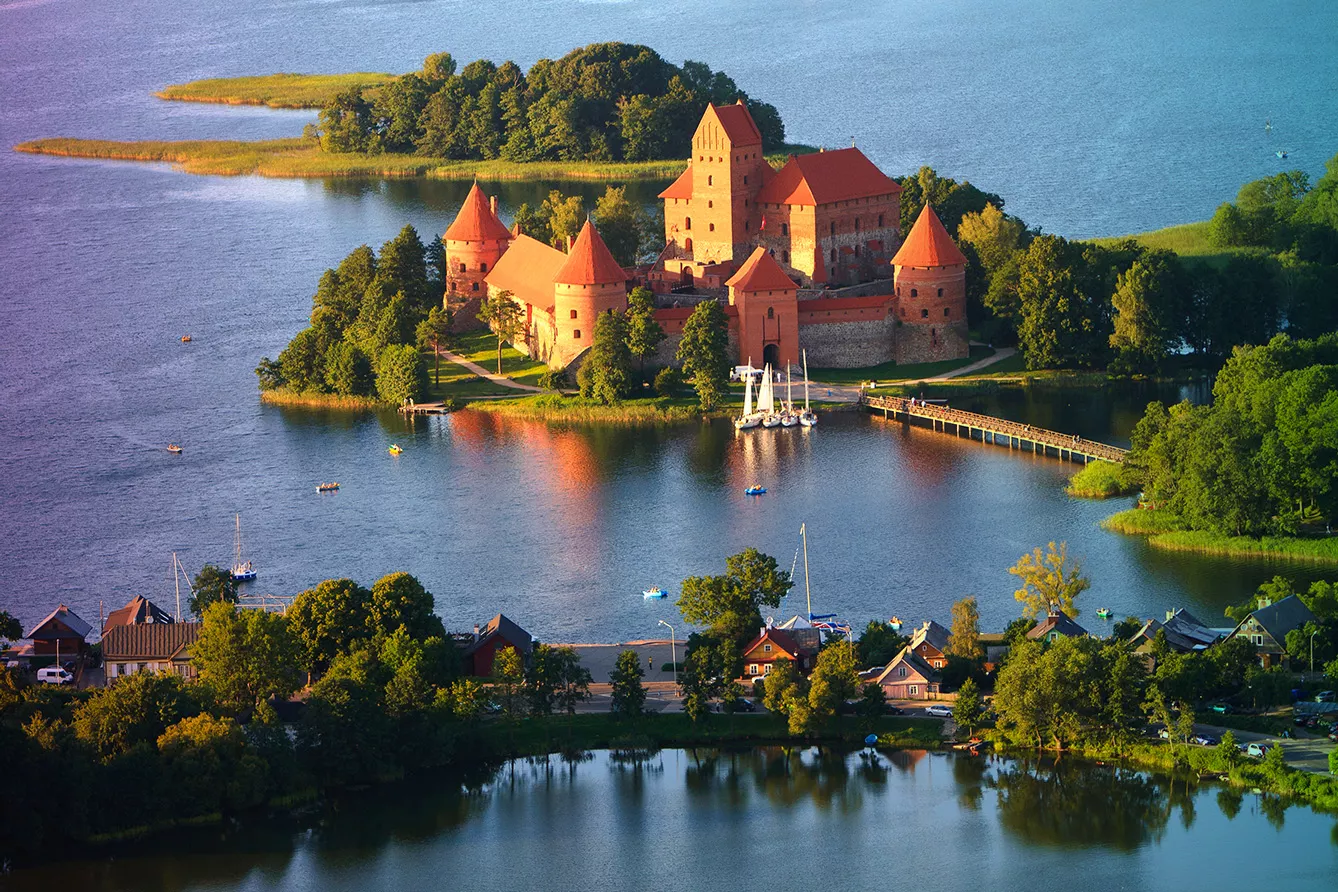Grand Duke Gediminas enjoyed hunting. As probably most of the medieval rulers. The legend says that Gediminas strolled around the woods after one successful hunt. There he discovered a breathtaking lake, and he immediately decided to build a castle in its vicinity. Such is the origin of the first castle, located in Old Trakai.
The town’s name was first mentioned in 1337 in the sources by the Teutonic Knights order. As it is well known to all, the Teutonic Knights were far from being your cheerful, next-door neighbor. Their constant raids troubled the lands of Lithuania, and Trakai was particularly exposed due to its location. The old castle was severely damaged and then burnt down. Kęstutis, whose name went down in history as one of the Grand Dukes of Lithuania, found an even better location for a second castle – a peninsula between the lakes Galvė and Luka.
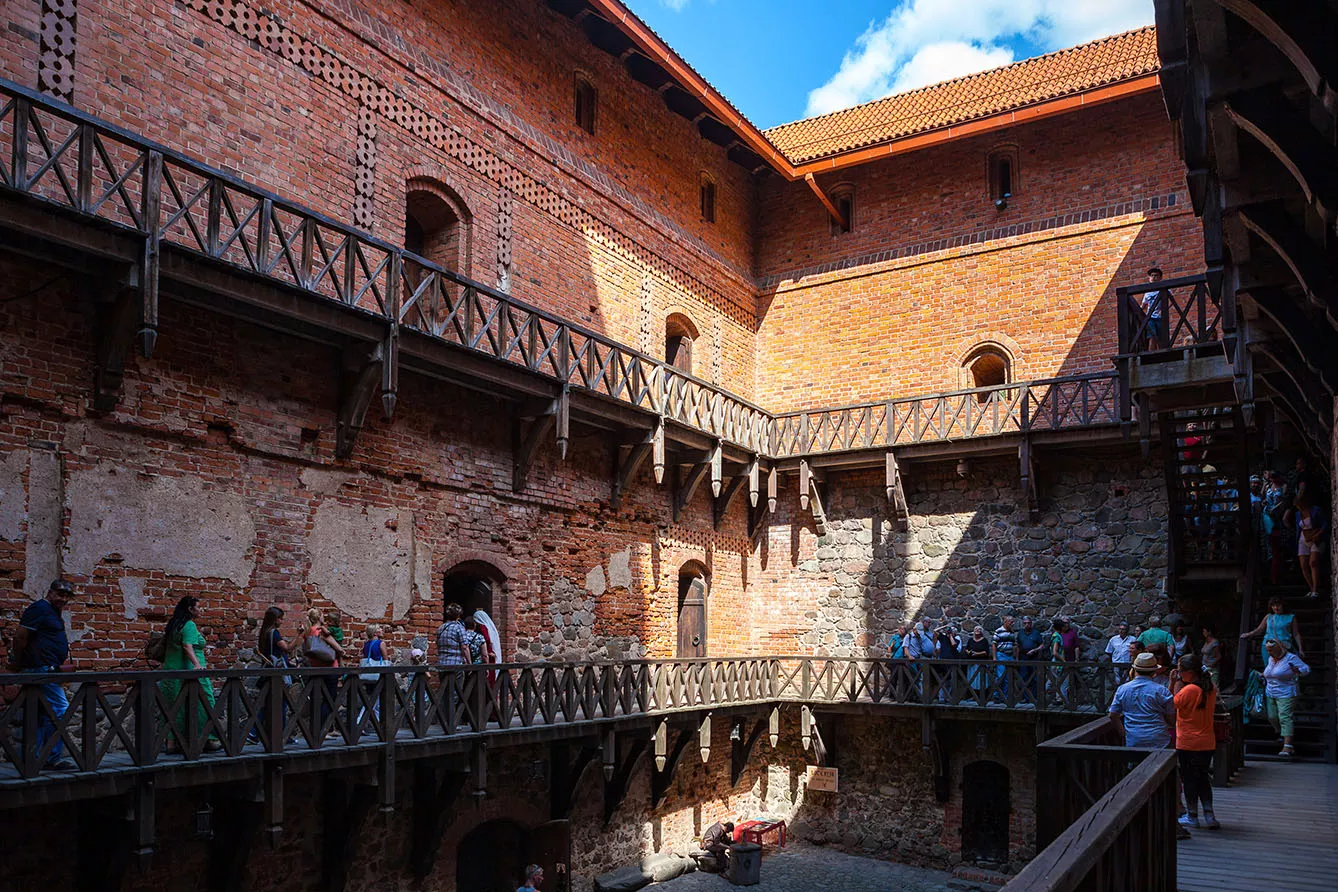
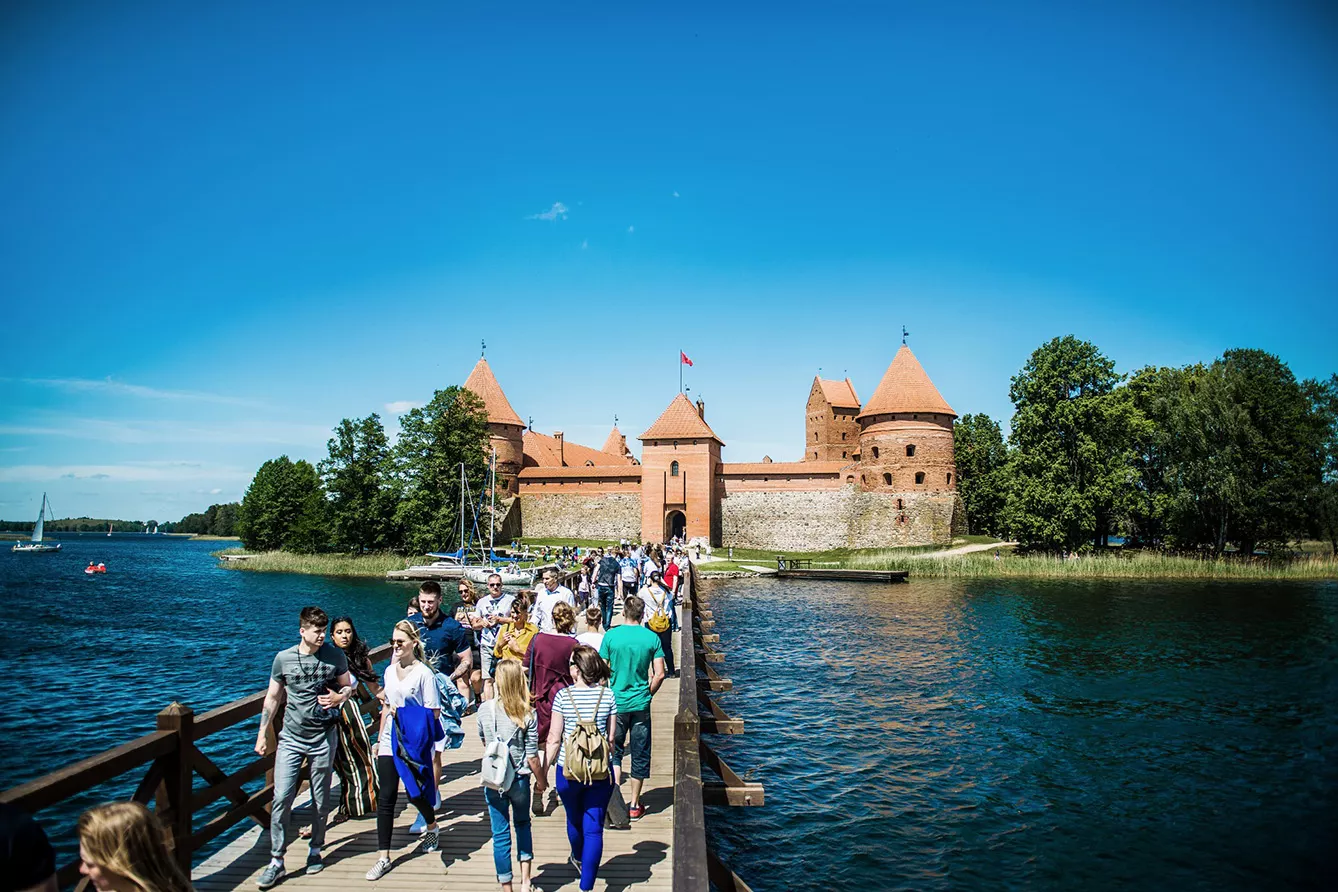
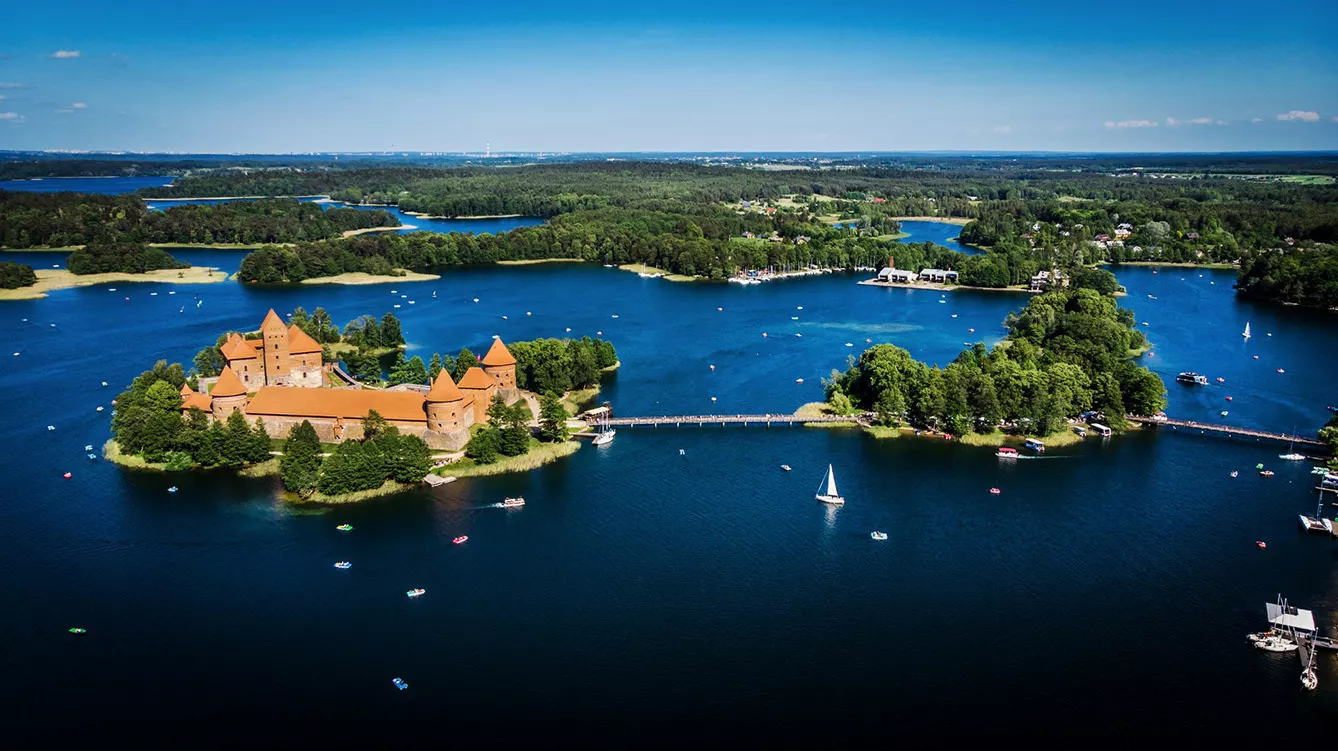
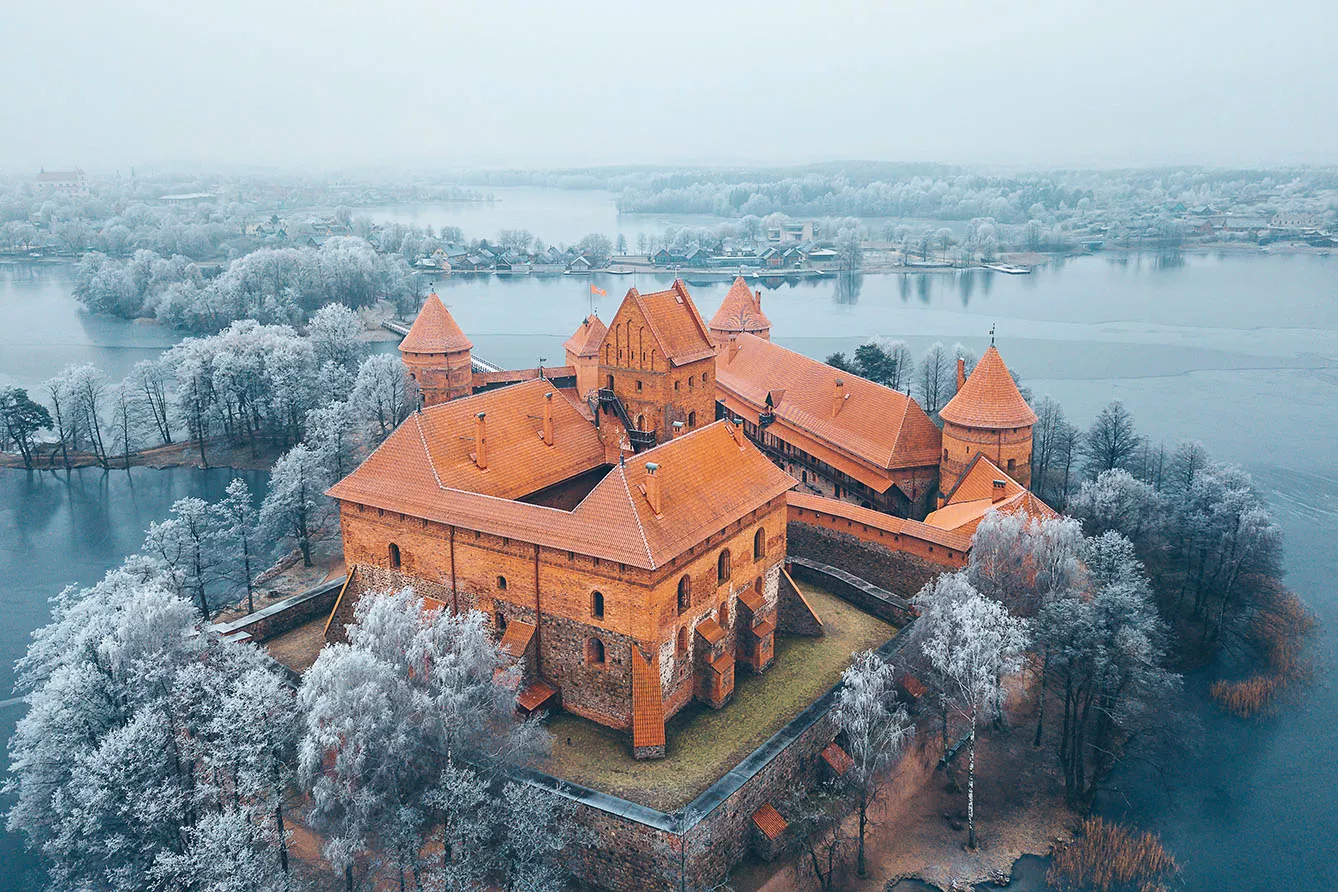
Build me an island
Although the castle’s construction is believed to have been started by Kęstutis, he did not live long enough to see the building completed. This was done by his son, Witold, who chose the castle as his permanent residence. As the peninsula was not naturally detached from the mainland, some major landworks created an island, making the fortress challenging to conquer. In fact, an enemy has never set foot on its premises following a successful siege. It is also the only castle in Central and Eastern Europe situated on an island.
After 1410, when the joint Polish and Lithuanian forces finally beat the Teutonic Knights in the fields near Grunwald, the castle’s strategic value was slowly fading. Be it as it may, its beauty and superb location granted it constant interest on the part of the rulers. It became more of a party location where the Grand Dukes would host kings of Poland and Czechia, as well as the ambassadors of such great realms as the Byzantine Empire or the Republic of Venice. The long period of peace and greatness was suddenly and brutally interrupted when the Russian invasion of 1655 left the castle in ruins.
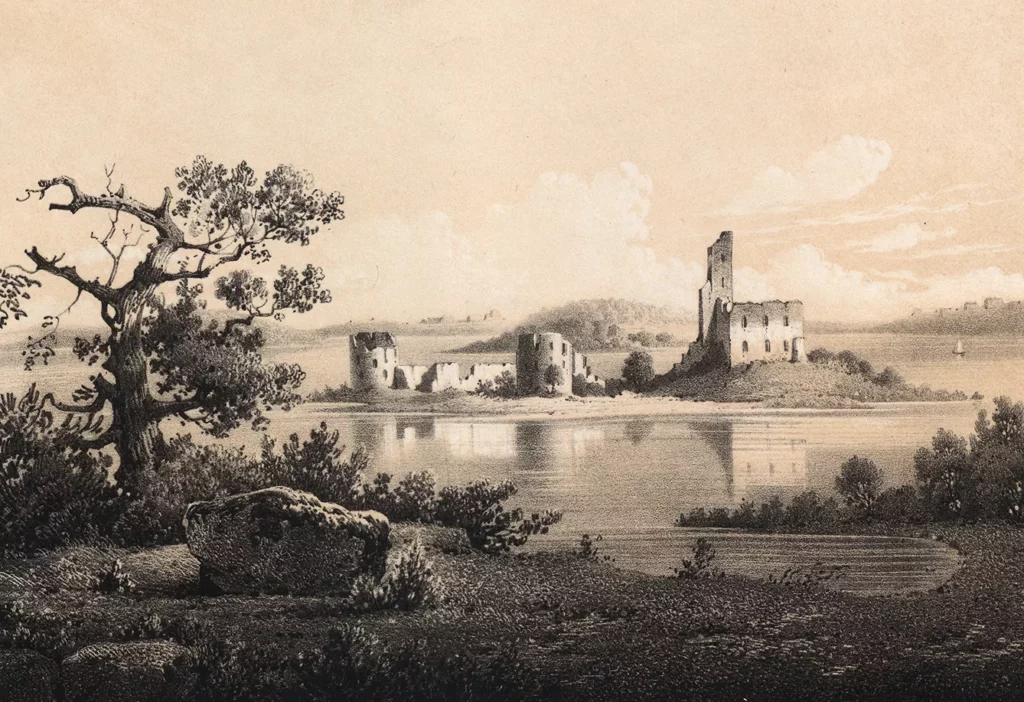
Trakai Castle: Rubble that united two nations
The castle lay in the rubble for some three centuries. Due to significant Polish influence post the Frist World War, its great reconstruction was initiated by Polish preservation officers.
At first, the works were meant to protect what was spared by history; however, in the 1930s, Ksawery Piwocki ( 1936-1938) and Witold Kieszkowski (1938-1939) carried out reconstruction works based on the most likely structure of the building in the 15th century.
The works were disrupted by the outbreak of the Second World War that brought about the reshaping of European borders. Trakai was under the sole care of Soviet-occupied Lithuania, so it was down to Lithuanians to continue with the restoration.
And that’s precisely what they did. The castle was finally restored to its former glory in 1987 by the joined efforts of two countries that, bound by their shared history, recognized the unique and important character of the site.
Good fortune as a courtesy of the underworld
Today, the castle area is still as picturesque as it must have been hundreds of years ago when Gediminus came here to hunt. The status of a National Park ensures no modern constructions disrupt its natural beauty. Trakai Castle, or the Island Castle as it is also known, draws thousands of tourists each year.
Those who stay here overnight hope to see the spirit of the Grand Duke, Witold, who allegedly died here in King Jogallia’s hands. He is said to sometimes stroll by one of the towers, and his sight is something everyone hopes to see, as it is said that a meeting with the Grand Duke’s ghosts brings good fortune in the coming year. This probably makes Trakai Castle one of the only haunted castles in the world where it is the living who stalk the departed.


